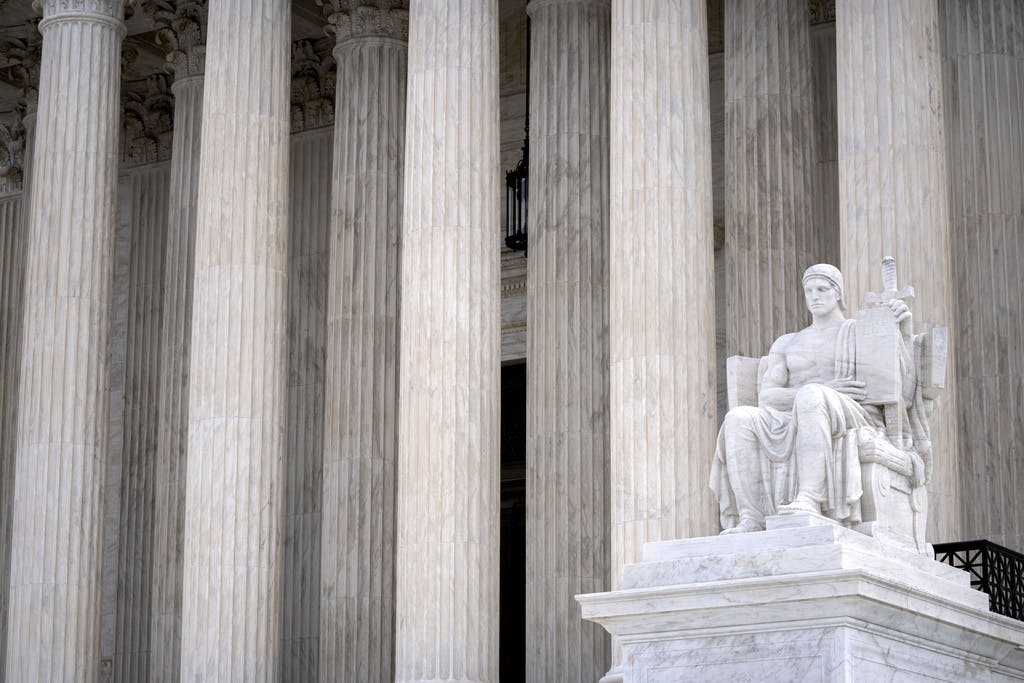Supreme Court Sets Standard for When a Public Official Can Block Users on Social Media
The case marked an important moment in First Amendment and social media debates that have been arising in recent years — a similar dispute involving President Trump’s Twitter reached the court in 2021 but was ruled moot.

In an important First Amendment case centering around the extent to which a public official’s own social media page is a public forum, the Supreme Court on Friday set standards for when social media expression can be considered state speech.
“When a government official posts about job-related topics on social media, it can be difficult to tell whether the speech is official or private,” the unanimous opinion of the court on Lindke v. Freed, authored by Justice Amy Coney Barrett, reads. The court held that such expression is only state speech when “the official possessed actual authority to speak on the state’s behalf” and “purported to exercise that authority when he spoke on social media.”
At issue was whether the city manager of Port Huron, Michigan, James Freed, violated the First Amendment rights of an “unwelcome commenter” on Facebook, Kevin Lindke. Mr. Freed ran a Facebook account that he created as a college student and later updated with information about his government job. The account wasn’t labeled as either a personal or official page, the court notes — rather, he described himself as “Daddy to Lucy, Husband to Jessie and City Manager, Chief Administrative Officer for the citizens of Port Huron, MI.”
He posted pictures of his family, dog, and Bible verses while also posting job-related information, including city news, surveys, press releases, and information about Covid. Issues arose when Mr. Freed deleted comments and automatically blocked Mr. Lindke, who was posting negative comments about the city’s handling of the pandemic. Arguing that the account was a public forum and that Mr. Freed silenced his speech by blocking him, Mr. Lindke sued. Both the district court and the Sixth Circuit court ruled that Mr. Freed was acting in a private capacity.
The Supreme Court remanded the case for further proceedings under the new standards, which may raise further questions in social media and First Amendment debates that have been arising in recent years. In a separate case related to campaigning on personal social media pages, O’Connor-Ratcliff v. Garnier, the court on Friday referred to the test elaborated on in the Lindke case and remanded it back to the Ninth Circuit.
The Lindke dispute marked an important moment for the court to consider when a state official who “routinely interacts with the public” is acting in the private or public realms.
“Such officials may look like they are always on the clock, making it tempting to characterize every encounter as part of the job,” the court notes. “While public officials can act on behalf of the State, they are also private citizens with their own constitutional rights.”
The court emphasized that Mr. Freed did not give up his personal free-speech rights when he took a government position.
“Thus, if Freed acted in his private capacity when he blocked Lindke and deleted his comments, he did not violate Lindke’s First Amendment rights—instead, he exercised his own,” the ruling reads.
The Sun was unable to reach Mr. Freed’s attorneys. Mr. Lindke’s legal team praised the standards that could allow public officials to be held liable for posting public information on their personal accounts.
“We are delighted that the Supreme Court has vindicated the right of citizens like Kevin Lindke to hold their public officials accountable when they use personal social media accounts to do their jobs,” Mr. Lindke’s counsel of record, Allon Kedem, tells the Sun.
A similar social media dispute — involving President Trump blocking people from his Twitter (now X) account — reached the Supreme Court in 2021, but it was ruled moot because Mr. Trump was no longer in office, and his account had then been suspended by Twitter.
At the time, Justice Clarence Thomas foreshadowed that the issues would have their day in court again, emphasizing the “legal difficulty that surrounds digital platforms” as well as concerns over Big Tech.
He said that while some aspects of Mr. Trump’s account could be considered a public forum, “it seems rather odd to say that something is a government forum when a private company has unrestricted authority to do away with it” — referring to Twitter’s ability to block Mr. Trump from the entire platform and, by extension, blocking all Twitter users from interacting with Mr. Trump.
“Today’s digital platforms provide avenues for historically unprecedented amounts of speech, including speech by government actors,” he wrote. “Also unprecedented, however, is the concentrated control of so much speech in the hands of a few private parties. We will soon have no choice but to address how our legal doctrines apply to highly concentrated, privately owned information infrastructure such as digital platforms.”

